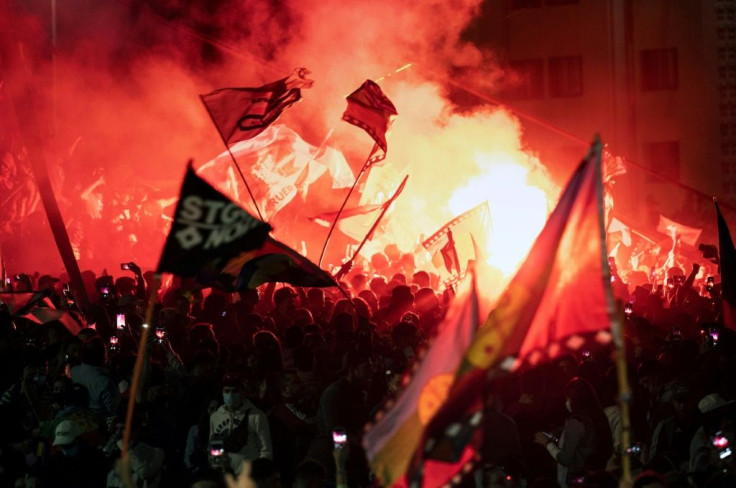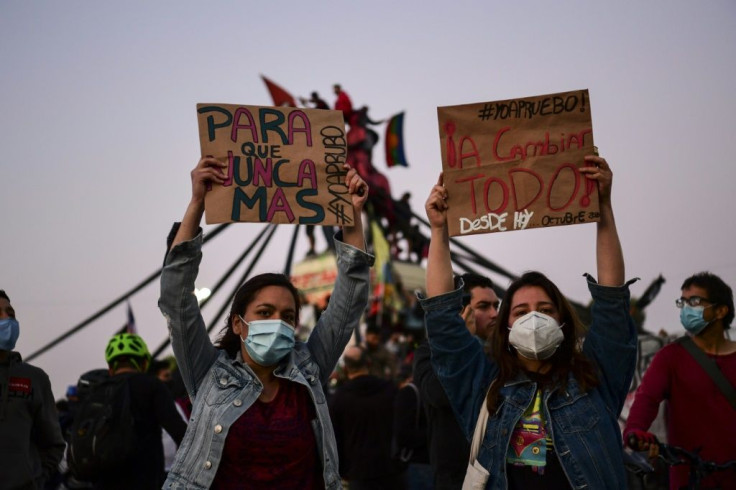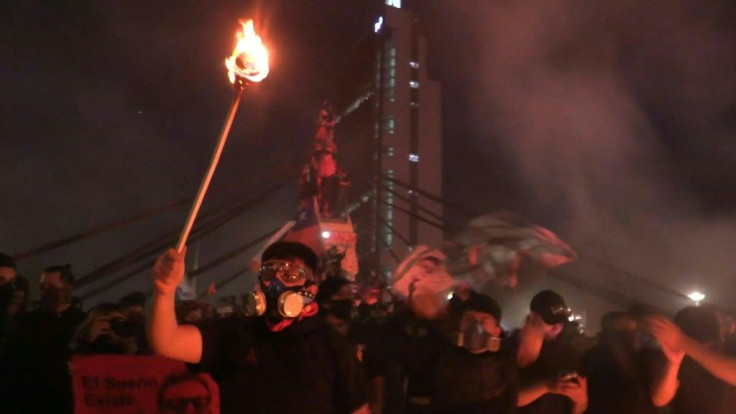Chileans Begin Work On Roadmap To New Constitution
Chile pressed ahead with the task of creating a roadmap to a new constitution Tuesday as Congress debated rules for choosing the body tasked with drafting the new charter.
Citizens of the South American country voted by a landslide in a referendum Sunday to throw out their dictatorship-era constitution, blamed for the jarring economic and social inequalities that led to months of violent protests.
Much of the path ahead is already clear, with the election of a constitutional convention, which will draft the new charter, slated for April 11.
However, independent candidates face an uphill battle in the race for seats on the convention, as they aim to limit the influence of the traditional parties.
Congress on Tuesday discussed removing one of the roadblocks to political independents playing a full part in the process.

Under current rules they need a minimum of signatures equal to 0.4 percent of voters in their electoral district, a tough task amid Chile's coronavirus epidemic.
Prospective independent candidates say the threshold is too high and want it halved.
Citizens overwhelmingly rejected an option in the referendum for lawmakers to take part in the drafting of the new constitution, handing that role instead to a new body whose members will be elected from scratch.

Several Chilean artists and celebrities have signaled their intention to run for the convention.
Sitting members of Congress are banned from participating, but independents fear the traditional parties -- seen as administrators of the dictatorship-era constitution for decades -- are preparing to stack the new body with their members anyhow.
Some of President Sebastian Pinera's advisors have expressed an interest in running. The president's daughter Magdalena Pinera is reportedly aiming to represent his conservative National Renewal party, part of his ruling Vamos coalition.
Also signaling her intention to run is Francisca Desbordes, daughter of Chile's defense minister Mario Desbordes.
There is lively debate on the number of seats that should be set aside in the new body for the Mapuche people, Chile's largest ethnic group.

"The task of the parliament is to ensure reserved seats for the indigenous people, so that this new constitution contains all the views and cultures there are in Chile," said Mapuche lawmaker Emilia Nuyado.
The constitutional convention will be composed of 155 members, who will be elected in a vote on April 11 that coincides with Chile's local elections.
Anybody can put themselves forward, but those involved in organizations and unions must renounce their positions if they are to participate.
Similarly, civil servants will also have to resign to participate and all 155 members will have to renounce running for public office for one year after its work is completed.
Members of the new body will receive a monthly salary equivalent to $3,200, around a third the amount earned by members of Congress.
The new constitution must be approved by two-thirds of its members.
However, "it's not clear whether each provision must be approved by two-thirds or if it is only the constitution as a whole, a difference of interpretation that could have important consequences with respect to what's agreed upon," constitutional lawyer Sebastian Zarate told AFP.
It remains possible the convention will alter this provision once it sits, said Zarate.
"However it's interpreted, the last word will go to the constituent body," said Zarate.
Once established, the convention will have nine months to draft and adopt the new constitution. If required, that timeframe can be extended once, for three months.
The text will be put to the electorate in a new referendum in 2022.
Failure to approve it will mean dictator Augusto Pinochet's 1980 constitution will remain in force.
© Copyright AFP {{Year}}. All rights reserved.





















